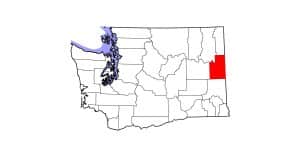Alberta Horses Confirmed With Equine Influenza
The horses began showing clinical signs on Nov. 19. Signs consisted of fevers of 103- to 105-degrees F and respiratory signs that included coughing, nasal discharge, and, in some cases, mild pneumonia.
The EI virus was diagnosed using PCR testing of nasal swabs. The most severely affected horses were not recently vaccinated against EI.
The horses are under supportive treatment, and stringent biosecurity protocols have been enacted.
About Equine Influenza
Equine influenza is a highly contagious respiratory disease that infects horses, ponies, and other equids, such as donkeys, mules, and zebras. The virus that causes it is spread via saliva and respiratory secretions from infected horses. Horses are commonly exposed via horse-to-horse contact; aerosol transmission from coughing and sneezing; and contact with human’s contaminated hands, shoes, or clothes or contaminated tack, buckets, or other equipment.
Clinical signs of equine influenza infection can include a high fever (up to 106°F); a dry, hacking cough; depression; weakness; anorexia; serous (watery) nasal discharge; and slightly enlarged lymph nodes. Consider monitoring your horse’s health at shows by taking his temperature daily, which can help you pick up on signs of infection early and take appropriate measures to reduce disease spread.
Vaccination is an important and inexpensive way to protect your horse. US Equestrian requires proof that horses have had an equine influenza vaccination within the six months prior to attending organization-sanctioned competitions or events. Your veterinarian can help you determine what other vaccines your horse might benefit from.
In addition to vaccinating, following strict biosecurity protocols can help reduce your horse’s chance of infection and disease. Such measures include quarantining new equine arrivals at barns, disinfecting buckets and equipment, and preventing nose-to-nose contact between horses.
Written by:
Edited Press Release
Related Articles
Stay on top of the most recent Horse Health news with












